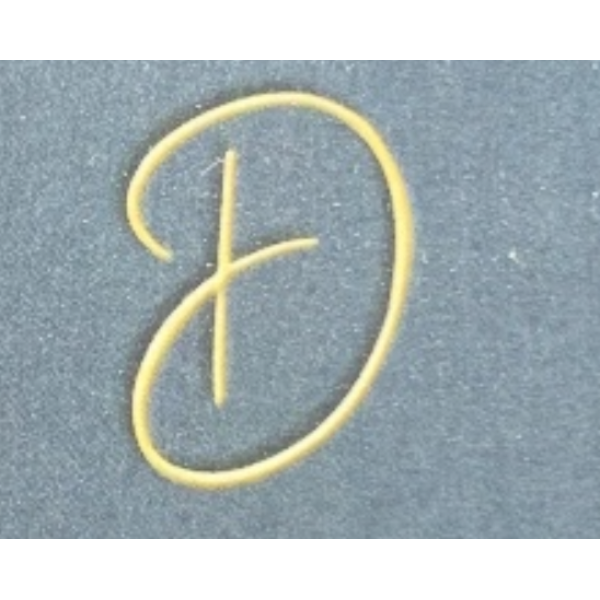Block Paving in Poole
Welcome to Mountbank Developments, your premier choice for all building and refurbishment needs in New Milton and across Hampshire. As a... read more »
Welcome to DPB Construction Ltd, your trusted partner for all construction needs in Turlin Moor and throughou... read more »
Welcome to... read more »
Marshall Original Paving Ltd is a re... read more »
Welcome to MB Paving Ltd, your trusted partner for al... read more »
Red Construction: Premier Landscaping and Blo... read more »
Welcome to Generation Builders & Landscape, your prem... read more »
Welcome to Urban Projects, your premier choice for ex... read more »
M.B.S Building Landscaping is your g... read more »
Welcome to GF Groundworks, your premier choice for ex... read more »
Seed 2 Tree Construction is a premie... read more »
Welcome to The Kraken Group Ltd, your premier choice... read more »
Welcome to GW Build, your premier choice for builders... read more »
Welcome to Diffey Property Services, your trusted par... read more »
Welcome to BRW Roofing And Maintenance Ltd, your trus... read more »
Welcome to CTGW & Landscaping, your go-to experts for... read more »
Elite Paving Solutions: Leading Driveway and... read more »
Welcome to Four Groundwork’s And Landscaping, your... read more »
Search Block Paving in places nearby
Understanding Block Paving in Poole
Block paving in Poole is a popular choice for homeowners and businesses looking to enhance the aesthetic appeal and functionality of their outdoor spaces. This versatile paving solution is not only durable but also offers a wide range of design possibilities. In this article, we'll delve into the various aspects of block paving, from its benefits to maintenance tips, ensuring you have all the information you need to make an informed decision.
The Benefits of Block Paving
Block paving offers numerous advantages that make it a preferred choice for many. Firstly, it is highly durable and can withstand heavy loads, making it ideal for driveways and pathways. Additionally, block paving is available in a variety of colours, shapes, and sizes, allowing for creative and customised designs. Its permeability also aids in effective drainage, reducing the risk of flooding.
Durability and Longevity
One of the standout features of block paving is its durability. Made from materials like concrete and clay, block paving is designed to last for decades with minimal wear and tear. This makes it a cost-effective solution in the long run, as it requires fewer repairs compared to other paving options.
Design Flexibility
With block paving, the design possibilities are virtually endless. Whether you prefer a traditional or contemporary look, you can choose from a wide range of patterns and colours to suit your taste. This flexibility allows you to create a unique outdoor space that complements your property’s architecture.
Environmental Benefits
Block paving is an environmentally friendly option due to its permeable nature. It allows rainwater to seep through the gaps between the blocks, reducing surface runoff and helping to prevent flooding. This feature also helps replenish groundwater levels, contributing to a healthier ecosystem.
Choosing the Right Materials for Block Paving
Selecting the right materials is crucial to the success of your block paving project. The most common materials used are concrete and clay, each offering distinct advantages.
Concrete Blocks
Concrete blocks are a popular choice due to their affordability and versatility. They come in a wide range of colours and finishes, allowing for creative designs. Concrete is also known for its strength and durability, making it suitable for high-traffic areas.
Clay Blocks
Clay blocks, on the other hand, offer a more traditional and natural look. They are highly durable and retain their colour over time, even under harsh weather conditions. Although slightly more expensive than concrete, clay blocks add a touch of elegance and timelessness to any outdoor space.
Installation Process of Block Paving
The installation of block paving involves several steps to ensure a stable and long-lasting surface. Proper preparation and execution are key to achieving the desired results.
Site Preparation
Before laying the blocks, the site must be properly prepared. This involves excavating the area to the required depth and ensuring a level surface. A sub-base is then laid to provide a stable foundation, followed by a layer of sand to bed the blocks.
Laying the Blocks
Once the site is prepared, the blocks are laid in the chosen pattern. It’s important to ensure that the blocks are tightly packed and levelled to prevent movement and uneven surfaces. Edging restraints are also installed to keep the blocks in place.
Finishing Touches
After the blocks are laid, kiln-dried sand is brushed into the joints to lock the blocks together. This process, known as jointing, helps to stabilise the paving and prevent weed growth. Finally, the surface is compacted using a plate compactor to ensure a smooth and even finish.
Maintaining Your Block Paving
Proper maintenance is essential to keep your block paving looking its best and prolong its lifespan. Regular cleaning and occasional repairs will ensure your paving remains in top condition.
Regular Cleaning
To maintain the appearance of your block paving, regular cleaning is recommended. This can be done using a stiff brush and soapy water to remove dirt and debris. For stubborn stains, a pressure washer can be used, but care should be taken to avoid dislodging the jointing sand.
Weed and Moss Control
Weeds and moss can sometimes grow between the blocks, detracting from the appearance of your paving. Regularly applying a weed killer and removing any growth will help keep your paving looking neat and tidy.
Repairing Damaged Blocks
Over time, some blocks may become damaged or dislodged. These should be replaced promptly to prevent further damage and maintain the integrity of the paving. Fortunately, block paving allows for easy repairs, as individual blocks can be removed and replaced without disturbing the surrounding area.
Cost Considerations for Block Paving
The cost of block paving can vary depending on several factors, including the materials used, the size of the area, and the complexity of the design.
Material Costs
As mentioned earlier, concrete blocks are generally more affordable than clay blocks. However, the choice of material should also consider durability and aesthetic preferences, as these can impact the overall value of the investment.
Labour Costs
Labour costs can also vary based on the complexity of the design and the experience of the installers. It’s important to hire a reputable contractor to ensure quality workmanship and avoid potential issues down the line.
Long-term Value
While the initial cost of block paving may be higher than other paving options, its durability and low maintenance requirements make it a cost-effective choice in the long run. Investing in quality materials and professional installation can enhance the value of your property and provide years of enjoyment.
Finding a Reliable Block Paving Contractor in Poole
Choosing the right contractor is crucial to the success of your block paving project. Here are some tips to help you find a reliable professional in Poole.
Research and Recommendations
Start by researching local contractors and asking for recommendations from friends and family. Online reviews and testimonials can also provide valuable insights into the quality of work and customer satisfaction.
Check Credentials
Ensure that the contractor is licensed and insured, and check their credentials and experience in block paving projects. A reputable contractor should be able to provide references and examples of previous work.
Get Multiple Quotes
Obtain quotes from several contractors to compare prices and services. Be wary of quotes that seem too good to be true, as they may indicate subpar materials or workmanship.
Frequently Asked Questions
- What is block paving? Block paving is a type of decorative paving used for driveways, patios, and pathways, consisting of individual blocks laid in patterns.
- How long does block paving last? With proper maintenance, block paving can last for several decades, making it a durable and long-lasting option.
- Can block paving be repaired? Yes, individual blocks can be easily replaced if they become damaged, making repairs straightforward and cost-effective.
- Is block paving environmentally friendly? Yes, block paving is permeable, allowing rainwater to drain through and reducing surface runoff.
- How do I maintain block paving? Regular cleaning, weed control, and prompt repairs are key to maintaining block paving.
- What are the costs associated with block paving? Costs vary based on materials, labour, and design complexity, but block paving is generally considered a cost-effective long-term investment.
Block paving in Poole offers a durable, versatile, and aesthetically pleasing solution for enhancing outdoor spaces. By understanding the benefits, materials, installation process, and maintenance requirements, you can make an informed decision and enjoy the many advantages of block paving for years to come.





